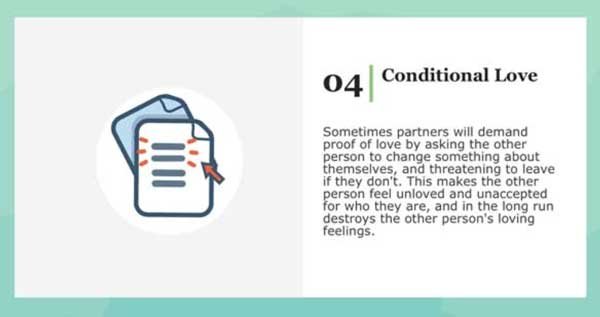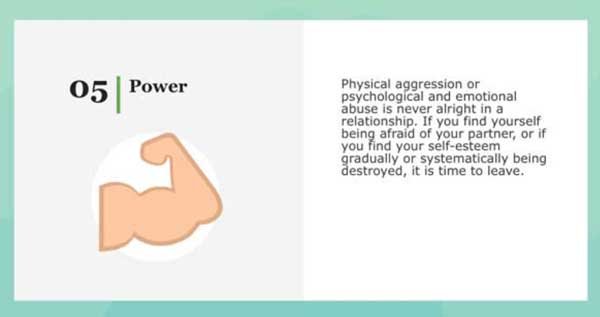One of the most frequent issues in relationships is what I would call the battle for control and power.
When two people get together, their realities often clash. One person may feel unhappy with the level of attention they get from their partner and may express this unhappiness as complaints about their partner or complaints about the relationship. The other person, in turn, may feel that their partner is often “making a mountain out of a mole-hill” and is creating problems where there are none.
Whenever such a clash of realities or perceptions occur, a battle for control often ensues. Most often it gets played out as a battle about who is right and who is wrong.
If I can prove that YOU are wrong, the logic goes, then you are the one with the issue, and the one who needs to change. This also means that I can continue to see the world my way and that I do not need to change anything about myself.
No wonder then that we find many different ways to exercise power and control in our relationships for we are really fighting to maintain a sense of normalcy about how we feel and how we think.
The Fight to be Right:
In relationships there are many both subtle and overt ways that partners can seek to exercise control. Do you recognize any of the following?
1. Exercising control through logical arguments:
One frequent way to win the battle of who gets to define reality is by offering the superior logic. Oftentimes this is the strategy deployed by males who have been culturally conditioned to disavow their dependency needs and who tend to focus on problem-solving and task management instead of their relational needs. Such males might try to squash the discrepancy in viewpoints by means of a series of questions intended to establish once and for all that the other person is irrational, has a logical flaw in their argument, or is “the crazy one”. Sometimes they will ask rhetorical questions that tries to catch their partner in a contradiction, and sometimes they will simply seek to undermine the validity of the other person’s emotions by suggesting that there is a rational or logical solution to the complaint the partner is voicing.
In one relationship, for example, the husband would try to quiet his wife’s distress by suggesting that they simply agree to act according to a set of rules about how to interact with each other. If only they always followed the same principles of how to interact, and agreed on rules they would both play by, then the wife could not complain that her needs were not being met. Unfortunately this rational solution did not really address the wife’s underlying issue, which had more to do with wanting a husband who would show her that he cared. She wanted her husband’s emotional presence, not his cool rational logic. Yet her husband's argument seemed so "reasonable" that his wife could not argue against it. She now felt that her concerns were not really valid, and concluded that she must be the "irrational" one for having them.
2. Exercising control through interrogation:
Another strategy often used in the struggle for control is the demand by one person for the other to explain themselves. Accusations shaped as questions such as “why are you late?!”, “where have you been?!”, or “why didn’t you bother to call?!” assume that the accuser is right and that the accused is wrong. The person who asks the questions feels entitled to an explanation, and the person who is accused feels obligated to provide good-enough answers.
The set-up is similar to a court-of-law where one person is the prosecutor, and the other is on the witness stand. The result is often one of inducing fear and anxiety in the accused who either feels the need to appease by agreeing with the other’s point of view, or feels the need to defend by providing a good enough explanation.
Over time these angry self-righteous demands for explanations can make the other person shut down and feel less and less comfortable expressing their opinions or voicing their own needs. The accused may increasingly become docile and go with the flow, but will lose a sense of investment in the relationship and will become increasingly distant or passionless in the relationship.
One person for example found himself abdicating his own desires and values in order to not upset his wife. He gave up his own first choice for a job in order to move with his wife to a different geographical region and support her career. In order to support his wife’s dream of living an expensive lifestyle, he found himself toiling away at a job that paid well but gave him little meaning and joy. He often acquiesced to wife’s many ideas about where to move the furniture, or when to get a new car. Increasingly he found himself living a life in which he had almost no personal stake. Ironically, his attempt to appease and avoid criticism from his wife led him to become more emotionally absent and disinvested, and this would get him in trouble with his wife who would complain that he was not taking enough initiative and not helping out enough at home.
3. Exercising control through non-verbals:
Much of the time partners exercise control over each other through non-verbals such as laughter, tone of voice, facial expressions, and body language. Withdrawing affection by giving someone the silent treatment is often used as an unconscious power-play to get the other person to apologize or suffer to the point of caving in or making the first move toward reconciliation. At other times, the use of humor can subtly invalidate the other person’s perspective. I have often seen one partner attempt to “laugh-with” the other person when that person is expressing a serious and heart-felt concern, as if to attempt to make them see the humor or silliness in their concerns. Facial expressions are another important way partners can try to exercise control. Showing contempt when the other person is talking can be a way to exert dominance. Contemptuous scoffs, sighs, or grimaces puts the other person down and makes the other person feel small, unworthy of care, and without value.
4. Exercising control through conditions:
Sometimes control is not so subtle. It simply is what it is. A partner may be trying to deal with their own fears of abandonment by becoming very rigid about what they require of the other person in order for that person to prove their worth. One person, for example, would ask her partner to prove her commitment by asking her to develop an interest in his hobbies, commit to going to the gym to lose weight, and dress up for him. He would try to change his partner, and would see any sign of change as a proof of love. Of course placing such conditions on another person is not going to be successful. The more you try to change somebody, the more they will resent you in the long run. As was the case in this relationship, the girlfriend would gradually find herself reduced to an empty shell and would need to break free from her partner in order not to lose herself.
5. Exercising control through power:
One last way that control can be exercised is of course through overt power or more subtle or overt emotional abuse. Threats or actual displays of physical violence, or outright attempts to belittle the other person and undermine their self-esteem, are the most destructive forms the exercise of control can take. It is never okay to feel threatened or endangered in your relationship, and yet it can be difficult in some cases to find a way out of such a relationship. Oftentimes the other’s dominant view of reality can be so powerfully enforced that the person who is being abused doubts their own worth, opinions, and instincts. They may therefore not just feel trapped physically, but may also doubt their own rights to boundaries, and take on the other person’s diminished view of themselves. “Maybe it was my fault,” they end up saying, or “maybe I really am not a good person”.
Understanding the Need for Control and Finding a More Egalitarian Solution:
Whenever we look deeply enough we find that the need for control in a relationship is really an attempt to manage feelings of low self-worth or reduce fears about loss of love.
Although some amount of control and power play is normal in order to fend off threats to our self-interest, in some relationships the need for control is so pervasive and undermining of the other person that it becomes outright unhealthy and destructive.
We cannot force anyone to love us or not to leave us, and we cannot cultivate loving tender feelings in the other person by squashing their self-esteem and invalidating their viewpoints.
In the short term, strategies of power and control may work, but in the long-term they will precipitate the very thing we are afraid of.
A person who does not feel valued, respected, and acknowledged will over time develop hatred for us and will need to escape the tightness of our grip. This is why strategies of control and power are always antithetical to what we really need or want in the long term.
The ability to be in a loving relationship requires of us that we develop greater comfort with talking to our partner about those fears and those vulnerabilities that often lie buried underneath our attempts to control and dominate. Without this ability to turn inward, and let the other person in on our common fears and insecurities, we cannot really love the other person fully, and cannot really let ourselves be loved. Our fears about being left or our shame about not being good enough will then always become the source of a battle for control to secure our own safety and maintain our self-respect.
About Me: I am Rune Moelbak, Ph.D., psychologist and couples therapist in Houston, TX. I help couples get out of negative cycles of power and control. Visit my website for more information.































